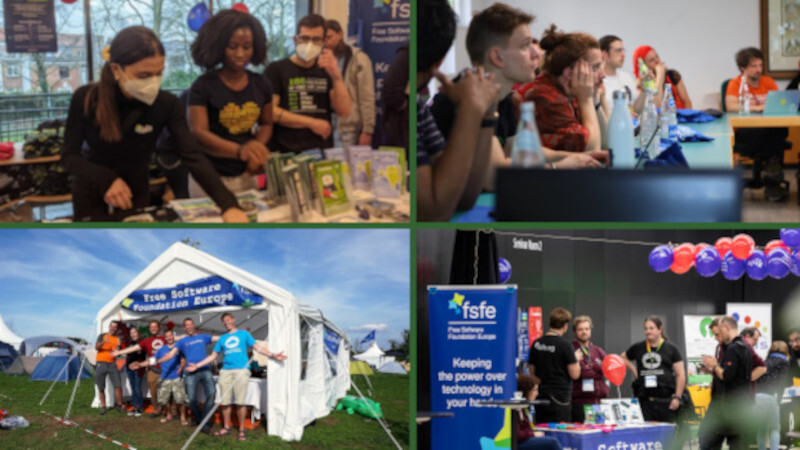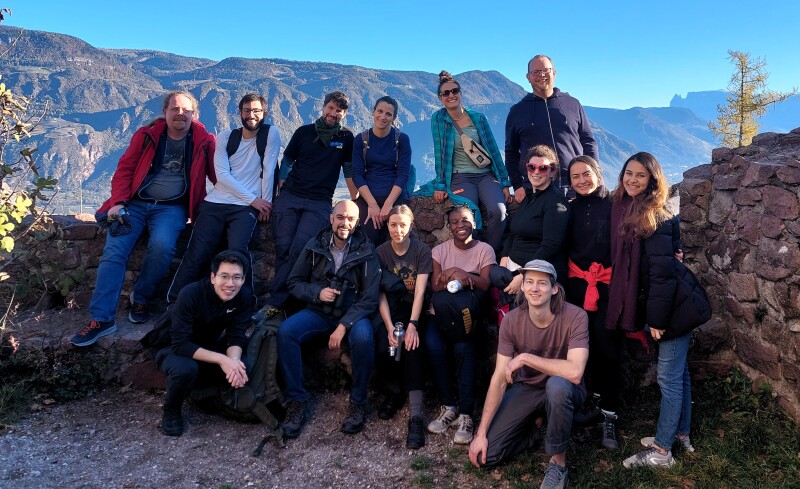Liability, Interoperability & Free Software in EU: what we are expecting
jeudi 24 août 2023 à 01:00Liability, Interoperability & Free Software in EU: what we are expecting
After the summer recess, EU institutions are resuming their activities at the end of August. In the coming months, we expect to see the adoption of legislation that could have an impact on Free Software: the Cyber Resilience Act, the Product Liability Directive, the AI Act, and the Interoperable Europe Act. What does all this legislation mean for Free Software and its community?

Liability and Free Software
The EU is currently aiming to introduce liability rules for software, including Free Software. Although the main debate revolves around the Cyber Resilience Act (CRA), the Product Liability Directive (PLD) is just as important. Similar rules are being introduced in the AI Act.
With regard to the CRA and the PLD, the Commission’s proposal to exclude Free Software “outside the course of a commercial activity” would fail to address a large part of the software that would not be covered but would be deployed. At the same time, smaller and non-profit projects would be harmed as they would have to bear major costs.
For this reason, the FSFE has proposed a solution that will lead to more security while safeguarding the Free Software ecosystem:
- Liability should be shifted to those deploying Free Software instead of those developing Free Software and
- Those who significantly financially benefit from this deployment should make sure the software becomes CE-compliant
Before the EU Parliament went into summer recess, we shared the latest news on the Cyber Resilience Act (CRA). The adoption of the Parliament’s position leaves a situation where Free Software developers are left with less far-reaching protections. Regular corporate donations or contributions by company employees to a project could turn non-profit work into a “commercial activity”, and therefore lead to liability. The three EU institutions will now negotiate a final text, which is likely to be concluded this year. We call on the EU institutions to find a compromise that safeguards the Free Software ecosystem while shifting liability to those who significantly benefit financially from its deployment. Read more.
Similar rules are being negotiated in the Product Liability Directive (PLD), where the FSFE is also demanding protection for Free Software developers. However, the Parliament has yet to adopt its position.
Regarding the AI Act, the EU Parliament has also adopted its final text by a large majority. It includes a far-reaching exemption for non-profit organisations and small Free Software projects up to the size of micro-enterprises. Negotiations on the final text between the three institutions (also known as trialogue, where representatives of the Parliament, the Council, and the Commission meet to agree on a final text) are already taking place. Here the FSFE calls on the EU Parliament to defend its position to ensure that this regulation protects not only Free Software and its contributors but also consumers and customers.
Interoperability and Free Software
With the proposed Interoperable Europe Act, the EU aims to create a dedicated legal framework on interoperability that will enhance cross-border digital public services across the Union. Since the beginning of the year, the FSFE has been advocating for a more inclusive governance structure in this legislation, where different stakeholders, including the Free Software community, can be part of the Interoperable Europe Board. A proper monitoring and evaluation process together with a dedicated budget are also part of our demands.
With the adoption of its final position, the EU Parliament has taken a step forward towards a more inclusive Board, while at the same time introducing clearer indicators and statistics to monitor the progress of this legislation. This is particularly important given that the Council's recent compromise text still moves in the opposite direction by hindering the inclusion of relevant stakeholders in the governance structure, as we have previously highlighted. Now the European Parliament, the Council, and the Commission will have to agree on a final text. The FSFE, therefore, calls on the European Parliament to maintain its position and not to allow any step backwards.
If you want a more thorough understanding of how the EU legislative process works, you can check out this complete guide (pdf) produced by the EDRi network, of which FSFE is a member.Help us continue to make our demands heard in EU policy!
At FSFE, we work to be an essential stakeholder when talking about Software Freedom at the EU legislative level. Our daily work contributes to strengthening our political advocacy and getting our demands taken into account. And your support makes it possible!
The FSFE would be nothing without our supporters. Every financial donation helps us to continue our daily work in public awareness, policy advocacy, and legal and technical work, and to strengthen our community. Support Software Freedom, support the FSFE.


 CC-BY-NC-SA BY
CC-BY-NC-SA BY 

